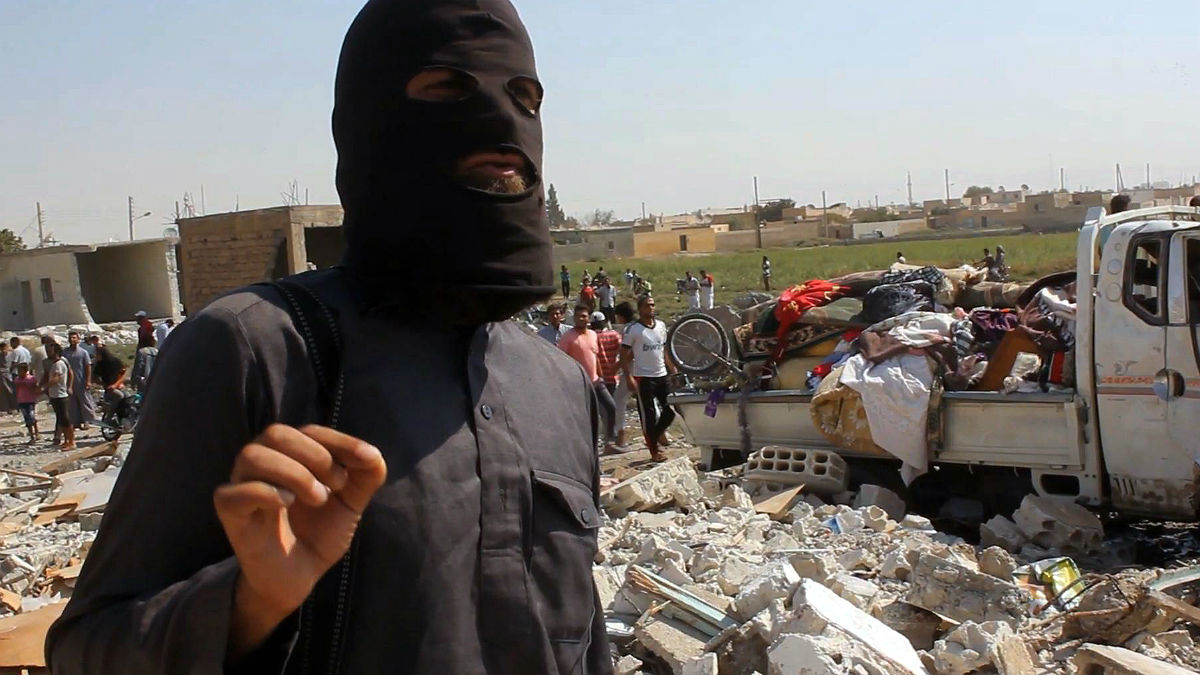Dozens of IS children could be resettled in Australia
Government draws up plan to reintegrate offspring of Australian militants

A free daily email with the biggest news stories of the day – and the best features from TheWeek.com
You are now subscribed
Your newsletter sign-up was successful
Dozens of children of Islamic State militants may be given a new life in Australia, under controversial plans unveiled by the country's government.
With a coalition of Kurdish and Arab militias closing in on the terror group’s final strongholds in Iraq and Syria, thoughts are increasingly turning to what should be done with the children of the defeated militants.
More than 200 Australian men and women are believed to have travelled to Syria either as fighters or as “jihadi brides”.
The Week
Escape your echo chamber. Get the facts behind the news, plus analysis from multiple perspectives.

Sign up for The Week's Free Newsletters
From our morning news briefing to a weekly Good News Newsletter, get the best of The Week delivered directly to your inbox.
From our morning news briefing to a weekly Good News Newsletter, get the best of The Week delivered directly to your inbox.
Around 70 children of IS fighters either hold Australian passports or are eligible to apply for citizenship because they have at least one Australian parent, according to government estimates.
Justice Minister Michael Keenan told The Sydney Morning Herald that the government had drawn up a detailed plan to reintegrate any of these children who returned to Australia.
Keenan emphasised that public safety was the government’s first priority, but that their plans also addressed “counselling, education and welfare” programs to ensure the minors would be supported in readjusting to life outside the caliphate.
However, in some cases, the line between victim and perpetrator is disturbingly blurred, with high-profile instance of young children being encouraged to participate in the group’s atrocities.
A free daily email with the biggest news stories of the day – and the best features from TheWeek.com
In 2014, the seven-year-old son of Khaled Sharrouf, who left Sydney for Syria was pictured “holding up a severed head” for a propaganda photograph, the Daily Mail reports, while another photo showed Sharrouf and his young sons brandishing assault rifles.
The reintegration of children who have been indoctrinated with IS ideology and may even have committed atrocities on behalf of the group is likely to be a delicate and controversial task.
"There's a real tension between doing things in a way that's appropriate to deal with the trauma and the complexity of those cases and a demand by the public to know what's going on and to be reassured," Jacinta Carroll, a security expert at the Australian National University, told Fairfax.
Earlier this month, Unicef Australia's director of policy and advocacy, Amy Lamoin, spoke of a “balance of interests” when it came to protecting the public while also making it possible for the children to start a new life.
“If you look at children's lives, it's likely they had no choice in the matter,” she told the ABC. “They are first and foremost children before they should be considered a threat.”
-
 The environmental cost of GLP-1s
The environmental cost of GLP-1sThe explainer Producing the drugs is a dirty process
-
 Greenland’s capital becomes ground zero for the country’s diplomatic straits
Greenland’s capital becomes ground zero for the country’s diplomatic straitsIN THE SPOTLIGHT A flurry of new consular activity in Nuuk shows how important Greenland has become to Europeans’ anxiety about American imperialism
-
 ‘This is something that happens all too often’
‘This is something that happens all too often’Instant Opinion Opinion, comment and editorials of the day
-
 Epstein files topple law CEO, roil UK government
Epstein files topple law CEO, roil UK governmentSpeed Read Peter Mandelson, Britain’s former ambassador to the US, is caught up in the scandal
-
 Iran and US prepare to meet after skirmishes
Iran and US prepare to meet after skirmishesSpeed Read The incident comes amid heightened tensions in the Middle East
-
 Israel retrieves final hostage’s body from Gaza
Israel retrieves final hostage’s body from GazaSpeed Read The 24-year-old police officer was killed during the initial Hamas attack
-
 China’s Xi targets top general in growing purge
China’s Xi targets top general in growing purgeSpeed Read Zhang Youxia is being investigated over ‘grave violations’ of the law
-
 Panama and Canada are negotiating over a crucial copper mine
Panama and Canada are negotiating over a crucial copper mineIn the Spotlight Panama is set to make a final decision on the mine this summer
-
 Why Greenland’s natural resources are nearly impossible to mine
Why Greenland’s natural resources are nearly impossible to mineThe Explainer The country’s natural landscape makes the task extremely difficult
-
 Iran cuts internet as protests escalate
Iran cuts internet as protests escalateSpeed Reada Government buildings across the country have been set on fire
-
 US nabs ‘shadow’ tanker claimed by Russia
US nabs ‘shadow’ tanker claimed by RussiaSpeed Read The ship was one of two vessels seized by the US military